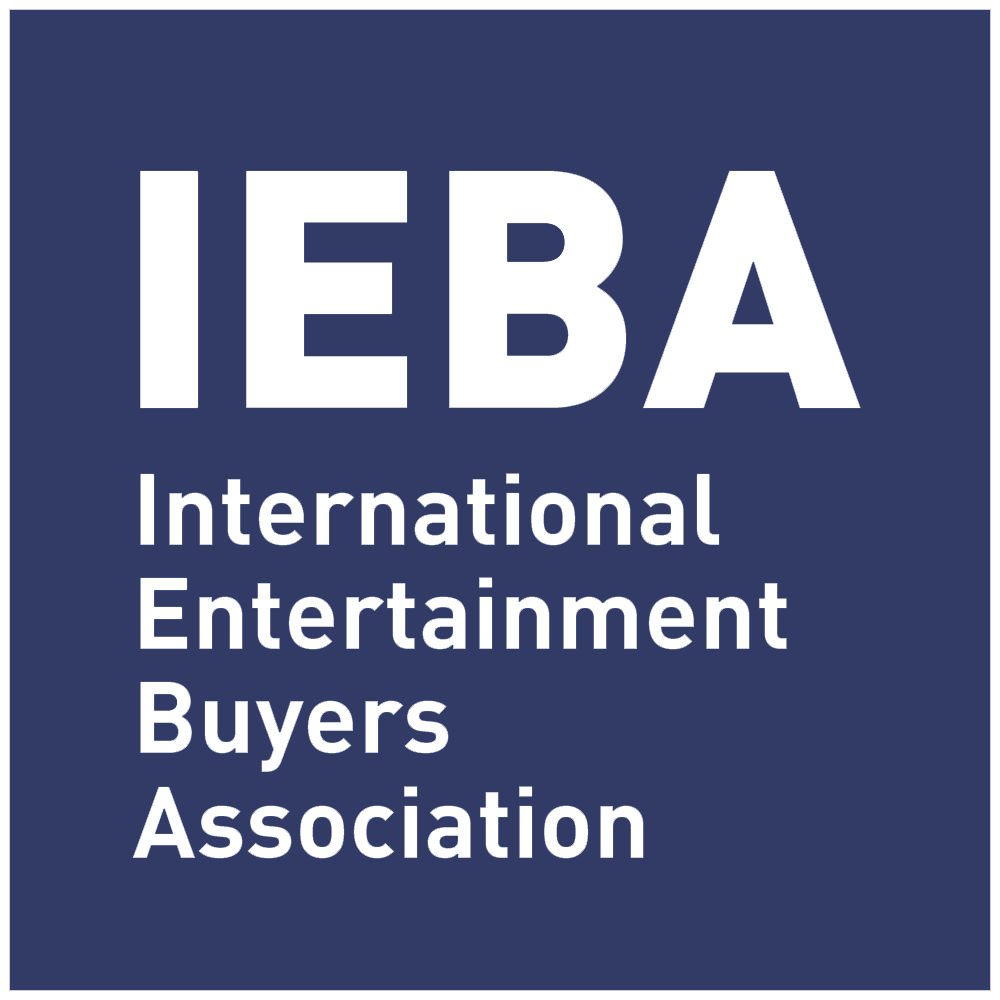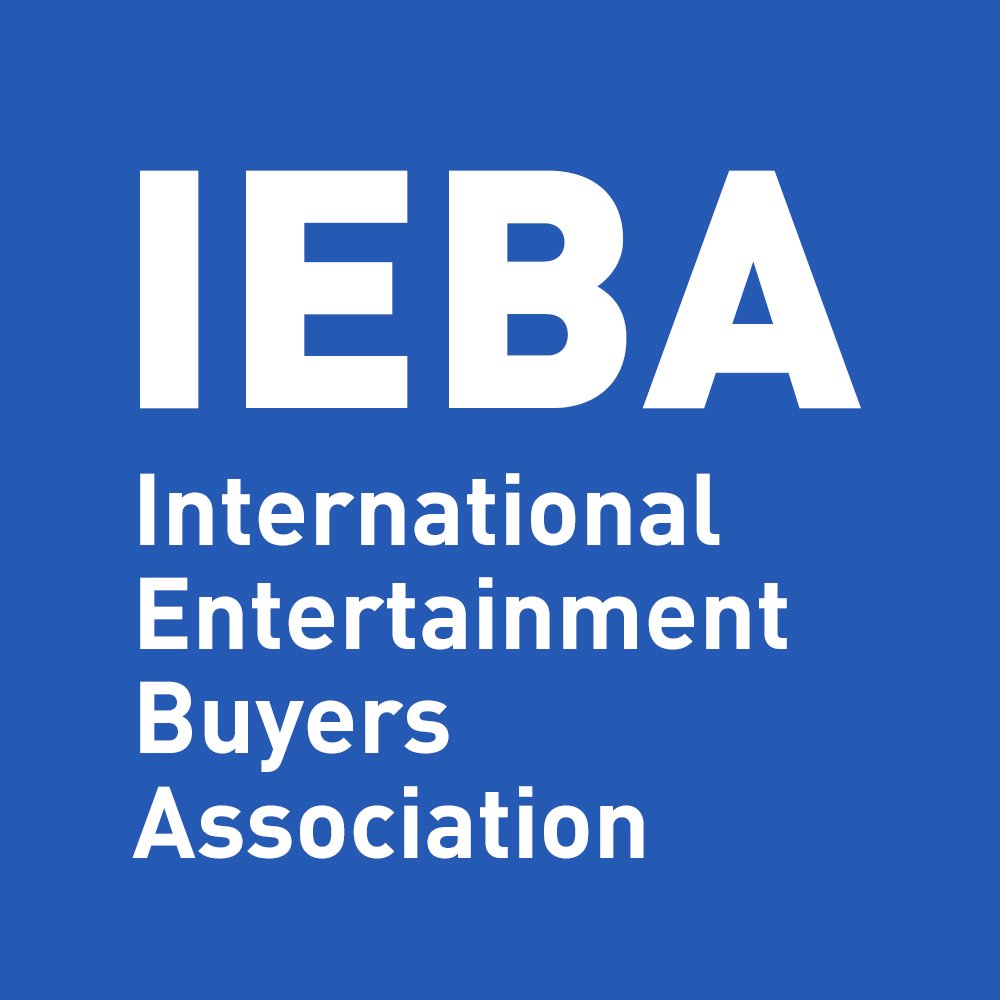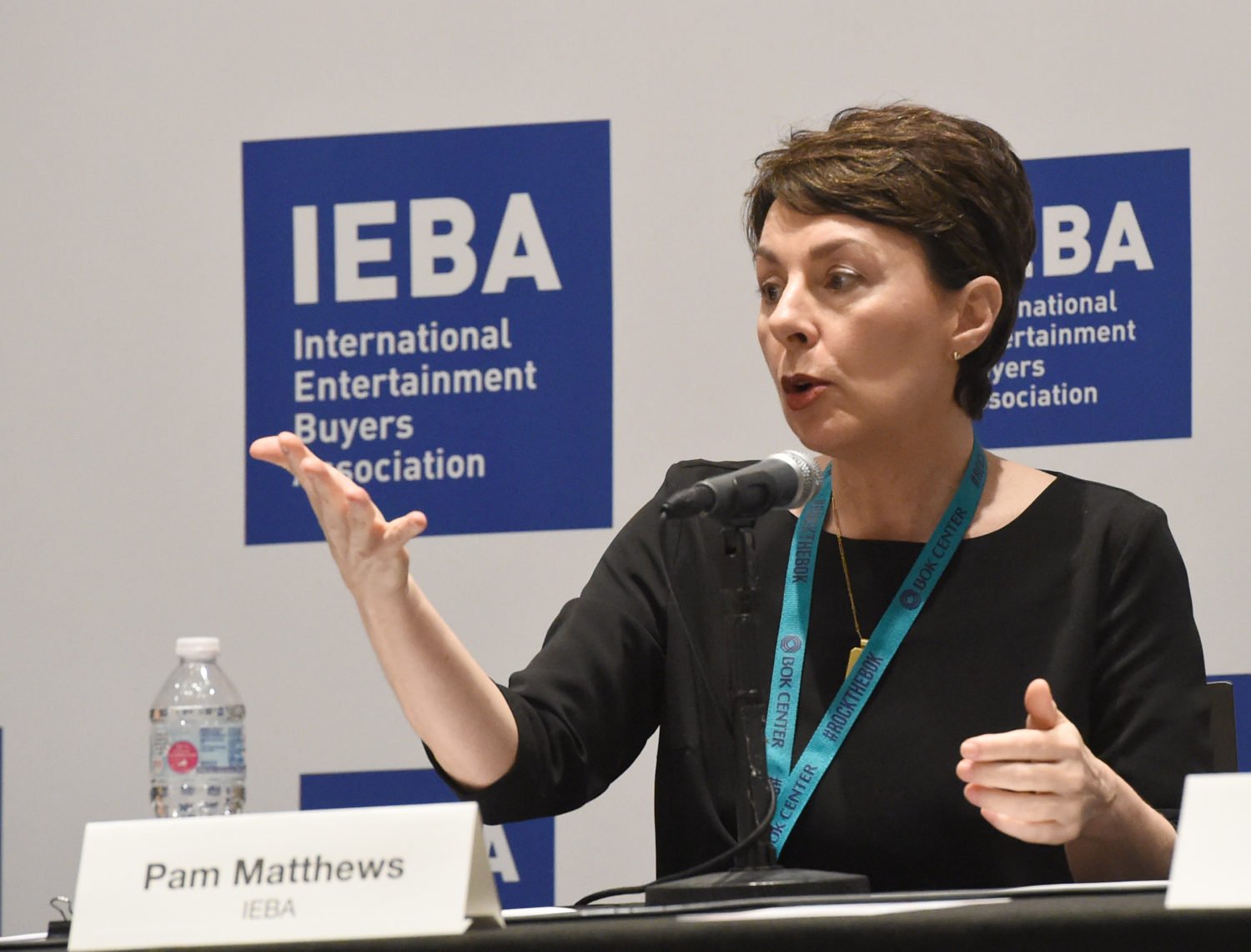Copyright 101
Presented by:
John Beiter, Beiter Law
Pam Matthews, IEBA
IEBA’s Executive Director Pam Matthews welcomed John Beiter of Beiter Law to this discussion of copyright law and music licensing. Beiter is IEBA’s board counsel and also represents SESAC. “I have a unique perspective,” Beiter said, “Representing a trade organization of buyers and promoters and also artists, songwriters, and a PRO.”
Why talk about copyright law at a live entertainment conference?
“I know many you have received hounding phone calls or emails from a PRO,” Matthews began. “For example, this email is reads ‘Dear Ms. Matthews, we’ve reached out on many occasions about your legal responsibility to obtain permission to publically perform copyrighted music.’ Perhaps you work at a building and you received BMI’s ‘Interim Extension’ letter in April. Maybe you’ve gotten calls from Vinnie with GMR. Perhaps you are a member of NACPA and are part of the BMI lawsuit. We understand the struggles promoters and venues have with the PROs.”
PROs are performance rights organizations. “Most people are baffled and frustrated by copyright law,” Matthews continued. “I believe much of this confusion stems from a lack of honest and open communication with the PROs. We’re here today to explain how the process works.” Without copyrights, many artists who dream of focusing their talents on music creation would be economically unable to do so. Copyrights allow songwriters the financial ability to support themselves as creators. Among the exclusive rights granted to copyright holders is the right to perform their works publicly. “Some people find it hard to believe that musical works are not free to be performed by anyone, at any time,” Matthews said. But, in fact, the 1976 Copyright Act clearly states that the copyright owner of a musical work has the exclusive right to perform the copyrighted work publicly. The right of public performance is a core right of copyright owners. Public performance is one of the major ways musical works are exploited, and a significant source of income for their owners.
A public performance licenses gives permission to perform music in public, and the public performance of a song almost always requires a license. Performing right royalties are earned when a musical work is performed publicly. Most public performance licenses are issued by one of the PROs. In the United States, they are ASCAP, BMI, SESAC, and GMR (established in 2013). Each PRO controls a different catalog of songs. Typically, the PRO will issue a blanket license, allowing public perform any of the songs in that PRO’s catalog.
What is the difference between a song and a sound recording?
“The Copyright Act of the United States gives the creators of works, including songs, motion pictures, recordings, and paintings, certain exclusive rights to use the creations they make,” Beiter explained. “These are exclusive rights. I painted this painting, and I exclusively have the right to decide what happens to it. If I am a songwriter, I have the exclusive right to do certain things with my song. I exclusively can preform it in public, whether it’s on the street corner or at Madison Square Garden.
“Say I am the songwriter but I can’t sing worth a damn. Some great singer wants to perform my song. Great! I have the exclusive rights to my song so that singer has to come to me or my music publisher to get permission to sing it. And that will involve them paying some money — royalties. Dolly Parton wrote ‘I Will Always Love You.’ Many people sing that song, but Dolly wrote it so she has the copyright. There is also a second copyright, a copyright of the recordings of that song. Whitney Houston’s record company got permission from Dolly to make a record of “I Will Always Love You” and the record company owns Whitney’s sound recording of the song. Sometimes it is hard to conceptualize the difference, but the song is the song no matter who records it. There are two different copyrights: the copyright in the song and a separate copyright in the sound recording, which is the recorded rendition of the song. But the songwriter always has the exclusive right to publically perform the song.
“If I am a writer, I need to sign with one PRO. Many songs are written by more than one writer. One could be a BMI writer and another an ASCAP writer. In this case, both ASCAP and BMI will collect royalties. That argument was decided just last year. As a music user, to make sure you are covered for all of the songs in the world, you need blanket agreements from all of the PROs.
“It would be impossible to collect every set list for every live performance and then find who wrote each song and which PRO that writer is with. These blanket license agreements allow us to pay for every song in every catalog. Use every song as much as you want or as little as you want, but you can sleep at night knowing that you didn’t do it without permission.”
Strained relationships, consent decrees, and what the future holds
The conversation turned to the strained relationships and contentious interactions between venues and the PROs. Beiter began, “If I were a venue operator and I got a letter or cold call from someone telling me that I owe them money and telling me, if I don’t pay up, I might owe $150,000 per song title – well, that might be effective from a strictly legal standpoint but, from a marketing standpoint, that is not good. It sets up an adversarial relationship that doesn’t have to be. I wish PROs looked at promoters and venues as valued customers. And venues should think of PROs as vendors who are offering a valuable service. Somehow, it should be a more synergistic relationship.”
“ASCAP began as, and still claims to be, an organization that is here on behalf of songwriters and publishers to collect the money they deserve. In the late 30s/early 40s, BMI was formed by the broadcast industry as a counterweight for ASCAP. The broadcast industry said ASCAP wasn’t so smiley face anymore. Radio stations said ASCAP was operating with a take-it-or-leave-it attitude: ‘If you’re going to play music on the radio, you can’t avoid us. Here is what we want.’ So the radio stations took their political power and went to the Justice Department. The Justice Department decided this approach was anticompetitive, and the Justice Department filed suit against ASCAP and BMI, saying the way that they were operating was not nice. The lawsuit was settled and ASCAP and BMI became subject to a consent decree. Instead of going to trial and spending millions and millions of dollars, the entities agreed on how they would conduct their business going forward. That was 70 years ago. The Justice Department is still overseeing the operations of ASCAP and BMI.
“Since ASCAP and BMI each claim something more than 50% of the market, they are both sort of monopolies operating against each other. At least that is the way the Justice Department looks it at. Consent decrees are not the norm, and it’s an unusual situation to have a consent decree against you. Maybe the most important thing the Justice Department said is ‘ASCAP and BMI, you have been beating up these music users. We will keep this case open in the United States Southern District of New York, and music users can always come back to this court if they think that they are being offered an unfair deal.’ It is still an active case.”
On September 24, 2018, BMI filed suit against NACPA in the United States Southern District of New York. “For years, the PROs concentrated on broadcast and television,” Beiter continued. “Then they turned their attention to digital and streaming. And now, with all of the industry headlines screaming that live is where it’s at, they turned their attention to live performance. Sometimes filing lawsuits is just a method of getting parties to finally settle something. But if this thing continues, there will be a court proceeding and the concert promoters and BMI will tell the judge what they think about all of this. The parties couldn’t come to terms so we are going to let a judge in New York decide.
“For me, it feels like maybe 18 months ago that ASCAP told ‘Chad,’ who works part time, ‘I want you to monitor social media and see where artists are playing live, and I want you to find a contact and start collecting from them.’ Chad might not know anything about the music industry.”
“I bet you he doesn’t,” Matthews replied. “It’s important to note that four states (Nebraska, Oregon, Colorado, and Washington) have new laws regarding PROs. These laws state that the job of the PRO is to collect royalties for their songwriter clients but fines will be levied against any PRO whose representatives use abusive, obscene or profane language or engage in coercive conduct.”
“Sounds like debt collection law,” Beiter observed.





